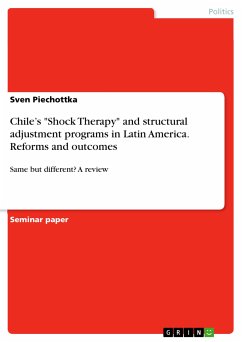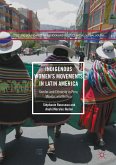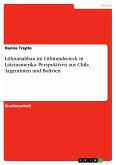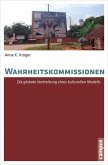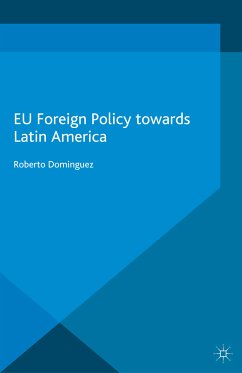Seminar paper from the year 2017 in the subject Politics - Region: Middle and South America, grade: 1,5, University of Potsdam (Chair for Political Science, Public Administration and Organization), course: Government and Governance in Developing Countries, language: English, abstract: In this short paper, I followed a comparative case study approach to explore the reforms and reform outcomes in four different Latin-American countries during the 1980s. I chose Chile as a successful example of structural adjustment politics and Bolivia, Peru and Argentina as deviating cases to evaluate different reform success. My findings supported a case-by-case evaluation. It turned out that orthodox structural adjustment policies were implemented differently in every country due to country-specific political, historical and institutional features as well as an altering relationship to international financing institutions. Generally, orthodox reforms seemed to back economic stabilization but not necessarily structural economic adjustment. A review of the current state of literature showed differing explanations for varying reform success. While some researchers attribute failure to heterodox deviation, others see a too orthodox course or suggest an explanation by inappropriate time and place for the reforms. Further research will be needed to clarify causalities. It is suggested to put a stronger focus on underlying context-dependent reform drivers and stumbling blocks.
Dieser Download kann aus rechtlichen Gründen nur mit Rechnungsadresse in A, B, BG, CY, CZ, D, DK, EW, E, FIN, F, GR, HR, H, IRL, I, LT, L, LR, M, NL, PL, P, R, S, SLO, SK ausgeliefert werden.

